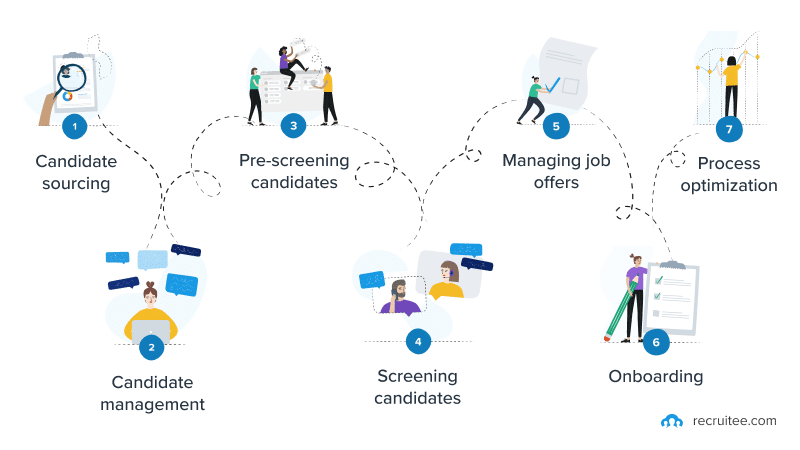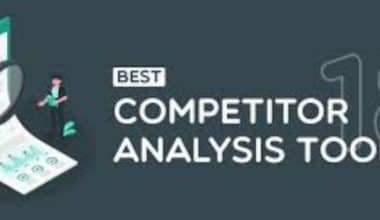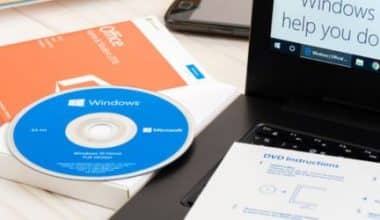A software program called an applicant tracking system (ATS) controls the entire hiring and recruitment process. You can manage candidates more quickly and cut down on the amount of time it takes to fill positions. In this article, you’ll learn everything you need to know about ATS including how ATS in recruitment keeps track of all activities in the hiring department, from online job postings to job offers.
ATS Definition
The Applicant Tracking System (ATS), is a software program that assists in recruiting, talent assessment, interview tracking, performance evaluation, offer making, and hiring. With the proper set of report insights and analytics, all of this is possible.
This comprehensive ATS recruitment overview will help you use the software quickly and learn how to shorten the time it takes to fill a vacancy. The management of your entire recruitment process, from candidate sourcing to hiring, is made easier with the aid of an ATS (Applicant Tracking System).
Why Users Select ATS Software
Finding the right talent has never been more challenging due to the fiercer talent competition. In situations like these, hiring managers must adjust to a method that completely streamlines the hiring procedure. Introducing.
How to Decide Which Applicant Tracking System Is Best (ATS)
Even for the most organized and technologically savvy recruiter, choosing the right applicant tracking system can be a challenge. Whether you’re hiring for your own business or a variety of clients, selecting the incorrect software can harm your brand and be a time and money waste. To choose the best ATS for your company, pay close attention to the following factors:
#1. Establish a Budget
Remember the problem you’re trying to solve before choosing an ATS. Are you really getting your money’s worth out of a costly solution? Discover how much the product costs, including the number of user licenses, job postings, and other candidate management specifics, as these are the elements that will ultimately influence your choice to buy.
#2. Create a Workflow Plan
No two companies are alike, and neither are their hiring requirements. Every business has a different procedure for moving candidates through the pipeline. Before you join up for a trial or demo, take the time to learn about the hiring needs at your organization. Browse a variety of product reviews for the registered site and product comparisons before making your decision. There is seldom a single answer that fits all possibilities.
#3. Review Software
Several ATS providers advertise their products as simple-to-use, specialized solutions, although this is rarely the case. Spend some time comparing various recruiting software options. Create an ATS wishlist and identify the gaps in your solution. Use the free trials that the majority of cloud-based software vendors provide.
#4. Recruiting on the go
Mobile recruiting is becoming a necessity rather than a luxury. You can be away from your desk while still working thanks to mobile recruiting. Ensure that the ATS system you select has a mobile version so that you may connect with your candidates at any time and post positions.
#5. Protect Your Data
Be sure a cloud is a secure place for your data. Several confidential and sensitive details are contained in recruitment software that should only be seen by you and your business. Verify that your ATS adheres to the necessary Privacy Policy Framework. Moreover, use SSL or comparable technologies to encrypt your data.
Who Makes Use of an ATS?
The job market today is more competitive than ever. This entails overcoming a number of obstacles for recruiters in order to complete the task. ATS serves two markets to suit the demands of this varied industry:
#1. HRs in Businesses
Finding and keeping the best personnel for your company and creating a positive candidate experience are your only concerns as corporate HR.
You can: “Post job openings onto your own careers portal” with the help of corporate HR software.
- Automate the posting of your jobs to both free and paid job boards.
- Use your current employees as a resource by using employee referrals
- Recruit applicants by utilizing a strong resume parser
- Use predetermined tests to screen applicants
- Conduct background checks on candidates, filter them using skill-based candidate matching, and integrate your HRIS system.
#2. Staffing Firms
Filling job openings with the most qualified individuals as a staffing agency makes all the difference.
You can: “
- Reach out to millions of applications worldwide via job boards” using staffing agency software.
- In a matter of minutes, parse thousands of resumes and add them to your ATS database.
- Screen numerous candidates using established evaluation methods
- Using skill-based applicant matching to sift through the noise and uncover the finest talent
- Productive client interaction using client portal Automatically send mass emails to candidates by setting triggers
- Create reports right now.
What is ATS System
Companies can use a software program called an applicant tracking system to organize and adapt their hiring procedure so that it is effective and scalable. With the aid of an ATS, recruiters and hiring managers can find, attract, assess, and hire prospects more effectively and quickly.
What is an Applicant Tracking System’s Main Function
An applicant tracking system’s main objective is to streamline the hiring process and improve its effectiveness and efficiency. To do this, recruiters are provided with access to a robust, centralized platform where they can gather and view applicants, follow their progress, and screen them based on their qualifications.
The Benefits of Applicant Tracking Systems are centered on ATS Platforms and Recruiting Technologies in General.
Although this section concentrates on ATS systems, many of its advantages apply to other recruitment technologies now available in the market. We’ll examine all the numerous advantages recruiters gain from setting up, using, and maintaining an ATS technology in their HR division.
The following categories can be used to categorize these advantages:
- Reduced workload
- Enhancing the candidate experience
- A more effective hiring procedure
- Improved hiring outcomes
- Less Work to do
An ATS platform can help recruiters and hiring managers in the following ways when used properly:
#1. Instantaneously and Automatically Publish Job Openings to many Job Boards
Drastically cuts down on the time needed to manually create and post advertising.
#2. Candidate Data is Automatically Gathered, Stored, and Aggregated
The ATS automatically gathers and stores all of the information that the applicant submits in their application as well as information that is easily accessible online, relieving the recruiter of that duty.
#3. The Screening Process is Sped up by Automated or Keyword-based Analysis of Resumes and cover letters.
So that recruiters can rapidly find qualified candidates, the ATS scans these documents to extract precise information and automatically records the data.
#4. It is simple to arrange candidate interviews.
The time-consuming chore of individually contacting each candidate and setting up a meeting time is eliminated by automated emails from the applicant tracking system (ATS).
#5. Keep a record of the outcomes of your screening actions, such as interviews.
The candidate’s profile contains all the screening data that stakeholders can access. There is no longer a requirement for hiring managers or recruiters to manually store this data.
#6. Use e-signatures to protect new hires.
The signed documents can be kept in the candidate’s profile and sent to new hires swiftly and securely using ATS platforms.
The first six advantages improve the candidate’s experience in a number of ways while also saving recruiters time on manual and repetitive tasks. Increased candidate satisfaction. Streamlining your hiring procedure benefits both the candidate and the hiring manager. How? Read on.
#7. Smooth communication between the application and the offer (or rejection)
Communication that is prompt and constant throughout the employment process conveys to candidates your regard and appreciation for them. The crucial communications with the candidate are automated by an ATS platform, making the entire process as effective and open as feasible.
#8. A Quicker screening process with clearer results.
Candidates advance through the hiring process more quickly as a result of effective scheduling and communication. Candidates may keep track of their applications and plan their next steps thanks to prompt alerts regarding whether they have been accepted or rejected.
What is ATS Resume
Stick to a conventional resume format, such as a hybrid resume, if you want your resume to pass the ATS. This resume format combines a chronological “Work History” part with a professional summary section at the start of the page to highlight your important abilities and qualifications.
How to do a Compliance Test for an ATS-Resume
During a job search, there are two quick ways to check if an applicant tracking system (ATS) can read your resume.
Make a Plain-Text File Out of Your Resume
Copy the information from your CV that is ATS-friendly, paste it into a plain-text document, and evaluate the outcomes. The plain-text version of your resume won’t be ATS compatible if it lacks important information from your original resume, contains wrongly preserved characters, or appears unorganized.
Ask the ATS to Scan Your Resume for Free
As part of our free resume review service at TopResume, we also provide career guidance and a free ATS resume scan. When you ask TopResume to analyze your resume for free, you will get feedback on both the content and ATS compatibility of your resume.
The first section of the assessment provides a thorough analysis of your resume’s information and design, highlighting its strengths and areas for improvement. The second part of the free resume review explains what information an ATS will extract from your resume, what information it won’t be able to identify and retrieve (like your name, contact information, most recent job title, and most recent employer), and how well your resume is performing for the top skills and keywords right now.
Types of ATS
The list below is basically, the few types of ATS:
#1. Workable
Workable, is one of the best-in-class recruitment tools, procedures, and automation provided in a single integrated system. Workable’s scalable tools, expertise, and support you in making the hires that make your business great, whether you’re adding 200 new employees or more.
Workable is the solution of choice for many respected organizations interested in enhancing their employer brand, recruiting the best people, managing big volumes of applicants, and streamlining their recruitment process.
#2. Greenhouse
Greenhouse is a top provider of recruitment software globally. On many lists of the best applicant tracking systems, it is towards the top with Workable. Its software, which has its corporate headquarters in NYC, primarily serves the mid-market and the enterprise, and it smoothly interfaces with many other HR tech vendors.
#3. Lever
Lever is a recruitment solution with offices in San Francisco and Toronto and is listed alongside Workable and Greenhouse as one of the best applicant tracking systems. It’s designed for midsize and enterprise businesses in addition to tech startups.
Also, Lever offers many of the same features as Workable, with some noteworthy exceptions in native product selection, integration possibilities, implementation and support, candidate sourcing, and scheduling options.
#4. Teamtailor
A Swedish recruitment solution called Teamtailor focuses heavily on its employer branding and recruitment marketing capabilities while operating predominantly in Europe. It takes pride in features like text recruiting, referrals, and candidate nurturing as well as its native careers page feature, and capabilities for marketing to certain talent markets, and.
#5. Jobvite
Jobvite, which has offices in Portland, the UK, and Canada in addition to its headquarters in Indianapolis, began as a social media-focused method of hiring for enterprise-sized companies. The platform enhances the hiring process using AI-powered techniques, such as the capacity to automatically screen and rate candidates according to predefined criteria.
#6. ICIMs
Internet Collaboration Information Management Systems, sometimes known as iCIMS, was one of the very first SaaS businesses in the early 2000s’ budding industry for recruitment software. It is a dependable legacy solution for businesses, and with a constantly changing product roadmap, it maintains a reputation for being cutting-edge and inventive. With offices in the US and the UK, it serves a large global market.
#7. Taleo
Taleo, a company with its roots in Quebec, Canada, and its current headquarters in California offers modular services based on the scope and complexity of customer requirements and is more of an all-encompassing personnel management software than a specific ATS. It bills itself as a simple Fortune 500 ATS interface that serves both recruiting teams and candidates, and it emphasizes a mobile-first and data-driven strategy.
#8. SmartRecruiters
SmartRecruiters is designed for enterprise-sized enterprises searching for a more comprehensive answer to their recruitment difficulties, as opposed to other ATSes that concentrate on startups and SMBs. One of the biggest applicant tracking systems (ATSes) in the recruitment solutions market, SmartRecruiters has its corporate headquarters in San Francisco and provides different integrations in several languages.
#9. JazzHR
With customized workflows for each job posting, JazzHR, a US-based recruiting SaaS, positions itself as a more affordable option that gives customers the chance to rank, track, and collaborate during the candidate evaluation process.
#10. Zoho Recruit
In order to create workforces that swiftly adjust to changing talent needs, Zoho Recruit positions its applicant tracking system (ATS) as being built for both recruiters and corporate recruiting teams. Zoho Recruit is a component of Zoho’s one-stop shop for company technology solutions, which also includes email, project management, budgeting, and other requirements. It provides solutions for both internal recruiters and employment agencies.
What is ATS and how does it Work?
A software program called an applicant tracking system (ATS) controls the entire employment and recruitment process. You can manage candidates more quickly and cut down on the amount of time it takes to fill positions.
Why do Companies use ATS?
An ATS also makes it simple for companies to monitor the hiring process and get in touch with candidates. Large firms that get hundreds of applications were the first to employ applicant tracking systems; but, smaller businesses are increasingly using them just as regularly.
What is ATS for CV?
Most businesses manage the application process using applicant tracking systems (ATS). Your résumé is collected, scanned, and ranked by this system. While ATS makes work for recruiters easier, it makes it difficult for employees.
What are the two types of ATS?
Circuit breakers and contactors are two different forms of automated transfer switches. Only one of the two interlocked circuit breakers on the circuit breaker type can be closed at any given time. The contactor type is a more straightforward design that is both mechanically and electrically held.
What is ATS System Example?
- Workable.
- Greenhouse.
- Lever.
- Teamtailor. \sJobvite.
- iCIMs.
- Taleo.
- SmartRecruiters.
How do I know if my CV is ATS Friendly?
Employ standardized section headings: Give your work experience and education parts titles that are commonly used. Utilize common fonts: Several more recent fonts change letters into special characters, which ATS frequently scans wrongly.
What are the Advantages & Disadvantages of ATS?
They include:
#1. Saves Time on Administrative Tasks
You can automate many hiring process steps with ATS software, which can help you save a lot of time and free up your recruitment staff to work on other high-value duties. Automation can be used for scheduling interview feedback, tracking applications from applicants, alerting them individually, and posting to different job boards. In addition to cutting down on the time needed to complete all of those jobs, uniformity will improve overall quality.
#2. Screening of CVs and Resumes
Recruiters receive hundreds of resumes for each position, making even the scanning process time-consuming. Application tracking systems (ATS) can be used to examine applications and weed out applicants who don’t fulfill the position’s basic standards. Hence, employing pre-screening questions or word searches within resumes can significantly minimize the number of resumes a recruiter needs to analyze. Again, time spent by a recruiter could be better spent on more valuable areas of the company.
#3. Quickens the Hiring Process
A single platform that houses all of the candidate information makes it easier for recruiters to analyze and compare candidates quickly and simply, which lowers the cost per hire. The evaluation process is streamlined and accelerated by the ability to store and view all communications, including notes, interviewer ratings, cases, and more, in a single location.
Disadvantages of ATS
#1. Could Eliminate Qualified Candidates
By “programming” your recruitment software to identify frequent keywords related to positions and duties, you run the risk of eliminating qualified individuals that have unusual experience or don’t have the keywords you’re looking for. A quality assurance approach and careful analysis of your filters can help you fine-tune the filter and lessen the likelihood of excluding qualified individuals. This is also true of manual evaluations, therefore automation generally has a positive net effect.
#2. Messages Might be Less Tailored
By automating responses to prospects, your messaging will be less personalized and can come out as robotic. Spending more time crafting effective communication might help it feel more individualized. Sending a less-personalized message is far preferable to sending none at all.
What are the Primary Functions and Benefits of using an ATS?
The applicant tracking system (ATS) gives you access to real-time statistics like average interview time for various roles, the best source for hiring, the number of applicants processed weekly or monthly, interview metrics, trends of applicant rejection for each department, employee resignation patterns, etc.
Conclusion
Cloud-based SaaS (Software as a Service) solutions, which you may use from any location at any time, are typically more robust ATS platforms. Depending on the kind of business it serves, different ATS platforms will have different scopes, levels of complexity, and prices. Although on-site and SaaS solutions are typically more expensive, they provide a vastly greater number of features and services than open-source alternatives.
Related Articles
- WHAT IS ATS: Examples & What You Should Know
- ATS SYSTEMS: Definition, Best Systems, Resume & Beat Systems
- GREENHOUSE ATS: Price, Training, Logo & Reviews 2023
- Real Estate Business Cards: Best Ideas, Templates, Samples & Quotes to Close deals Faster






